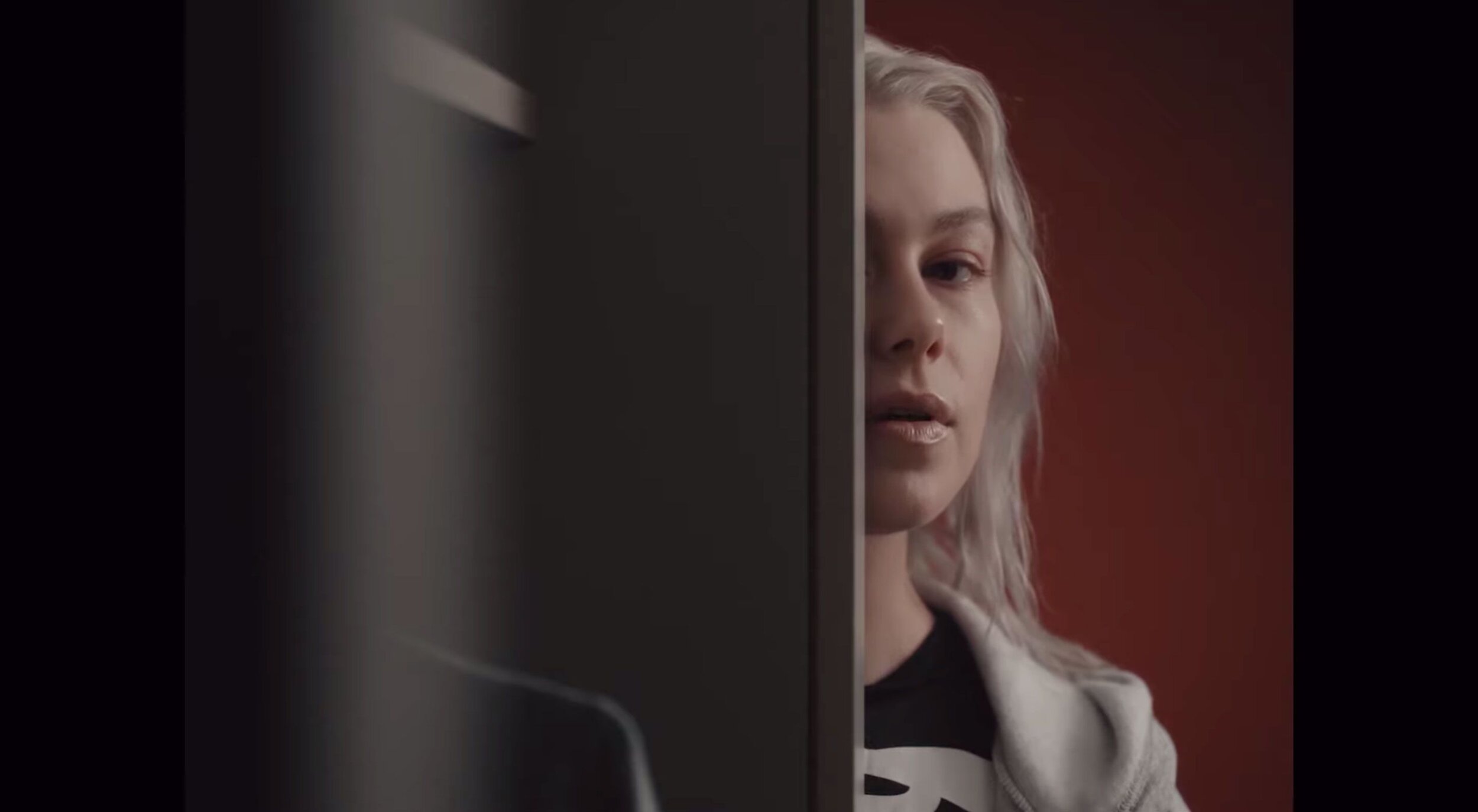I Know The End by Phoebe Bridgers Is The Best Song Of 2020. Here's Why.
As we face unique and frighteningly uncertain times, Bridger’s Punisher climax showed us how to say good bye and look forward at the same time
Tristan Young @talltristan
People forget but we’ve been saying things like this about every year for some time. Half a decade by now. Thank got its over, that was the worst year ever, can’t wait for the next one where things will be better. Recently, they haven’t been. Our personal and anecdotal ups and downs aside, on a macro scale each subsequent year has been precipitously worse than the last it seems, and that we are resigned to this down world spiral in perpetuity. There is something thematically or even existentially unfulfilling about such a demoralizing purgatory. What if we are destined to do this dance forever? I Know The End by Phoebe Bridgers adamantly argues against that. Instead she offers us cathartic respite in the form of something akin to finality. That finality may be one characterized by apocalyptic enormity, but it is one that we share together. We face it together, and while it may be the end we are encouraged not to fear it, but to embrace it. In a year where life as we know has ended in one form or another, that makes it the most important song of 2020, and the best.
We struggled with a certain amount of disorientation and anxiety to adjust to the ever-shifting realties of a year defined by pandemic, racial upheaval, and the slow burn deconstruction of liberal democracy. Bridgers sympathizes and reflects this consternation as she opens the song, entrenching herself in the soften edges of nostalgic memories, memorializing the way things used to be. She romanticises the nuances and doldrums of being on tour, “somewhere in Germany, but I can’t place it/ man I hate this part of Texas”. Everyday annoyances associated with the bureaucracies of normal life in whatever form them took are characterized here as an age of naïve but comforting innocence. It’s hard not to look at whatever we were doing 12 months ago in the same way. Bridgers just wanted to go home and live that quiet life as she puts it. She got her wish, we all did, but instead of a dream come true it was more portentous of doom and collapse. It’s affected all of us, crucially. Despite the derisive terminology, Bridgers eulogies with a wounded sense of earnestness that, “not even the burnouts are out here any more”. By casting her lot in with that of the discarded and disaffected classes of society she illustrates the totality of what’s happened around the world; to her and to all of us. These illustrations are modest and timid, her voice receding into her own exhausted shell. The inexorable kinetic energy she radiates in tracks like Kyoto is absent. This mental and physical exhaustion is endemic of our shared experience as we slowly encroach on the closest understanding of what oblivion might feel like in the modern age. While her force may be anaemic at this point, what does permeate every word is assiduous and genuine care for everything and everyone she reminisces about. She may not have cared before, but now she will sermonize even the most benign aspects of her former life. Through her ephemeral rhetoric she argues its okay to care that much about the little things, even if they were frivolous once upon a time. That being said, there also must come a time to move on.
This nostalgia will not save us, certainly not her. That’s not going to be enough to get us through all of this, whatever this is. She foreshadows her coming perseverance and metamorphosis in the second half of the song by slowly and gently realizing the futility in hibernating within her own memories. After waxing poetic on the dichotomous attachment and estrangement of someone close to her, “after a while you got quiet and I got mean/ I’m always pushing you away from me, but you come back with gravity”, she decides to start looking forward. “But, I’m not gonna go down with my home town in a tornado/ I gotta go know, I know I know I know”.
The guitars’ frail embers finally calcify into a nascent rhythm, their delicate timbre becomes a little more sinuous. There is a melody growing from this mental nadir that Bridgers is finally digging herself out of. The cautiously evolving guitar lines chart something of a course. It’s at this point where she confronts reality in one of the more lyrically impressive passages of recent memory, and certainly the best writing in a song this year. Everything she was hanging on to, so terrified to say good-bye to, so mournful when she had to; what really was her relationship with these things? What is our relationship with these things? It’s worth reading her the full breadth of her writing, as it grows more resonant with each subsequent exhumation.
“Driving out into the sun, let the ultraviolet cover me up/ Went looking for a creation myth, ended up with a pair of cracked lips/ windows down, scream along, to some America first rap country song/ a slaughter house, an outlet mall, slot machines, fear of god/ windows down, heater on, big bolting of lighting hanging low/ over the coast, everyone’s convinced it’s a government drone or alien spaceship/ either way we’re not alone, I’ll find a new place to be from/ a haunted house with a picket fence, to float around and ghost my friends/ No, I’m not afraid to disappear, the bill board said “The End Is Near”/ I turned around, there was nothing there, yeah I guess, the end is near”.
In this verse Bridgers looks for something, anything, to cling to in these uncertain times. She looks for religion and is left out in the cold and afraid. She seeks the comfort of nature and is exposed to the calamitous effects of climate change. She looks to patriotism in her country and finds only the exploitive and cynical machinery of late stage capitalism. She looks to solidarity in her community only to discover paranoia and epistemological fissures- the kind that have rendered any kind of healthy debate over the world’s ills a near impossibility. She looks to her friends and family, except she can’t as she has receded into to a haunted and solipsistic life like so many of us this year. It’s this verse that articulates the perverse, bizarre, and ultimately tragic reality of what life in 2020 is. When Bridges says there is nothing there, it’s rhetorical sure, but maybe just a bit literal.
Yet with every perceived set back, she grows more emboldened, more dramatically assured of herself. The guitars screech into electronic tirades as cinematic and opulent horns erupt with purpose. The sheer escalation of the track as it reaches its climax is just a little mollifying. As her list of options for reprieve grows shorter with each cultural examination, she edges closer to the precipice of personal oblivion. Yet the closer she gets the more she chases it, she’s not afraid of it. There is no stopping what is happening for any of us, no going back. As her stamina and assertions build to a heart felt crescendo she argues that in accepting and embracing this finality, we can find our grace, our bravery, and our salvation on the other side. Crucially, there is another side. In hopes of reaching it, what better way to say good bye to and mourn a way of life that seems more like a distant memory, one where we could do something as simple as freely and naively breathing the air around us with abandon, than to furiously scream at it. So she does just that. We now live in a world where to let loose a visceral and sustained howl is an act of medical heresy- indeed it is. That’s why, in the safe space of a recording studio that can be digested remotely, it’s the perfect way to defiantly cast aside a past life that was never as great as its relative normalcy would suggest. Something as taboo as screeching into the shared ether of daily life is a uniquely fitting tribute to the trauma that 2020 has wrought upon on us. In a manner that is no longer really possible, she lets loose a towering and unwavering howl- and an impressively sustained one no less- that personifies the enormity and finality of what we’ve lost and what we’ve become, but also signalling that we aren’t afraid of what comes next. Indeed she further articulates this idea of facing the unknown together, in whatever way we can, by inviting anyone around the world to record their own isolated scream to be integrated into a shared remix. That she curated a sampling of people taking part in the scream remotely around the world as a gesture of a communal spirit that we have largely had to exorcize from our lives is poetic and beautiful rejoinder to our new dystopian era. It’s the end of many things, and while we don’t really understand what we are on the precipice of, Bridgers final furious roar is uniquely instructive. The point is not to understand the end, but to face it, to know it.

